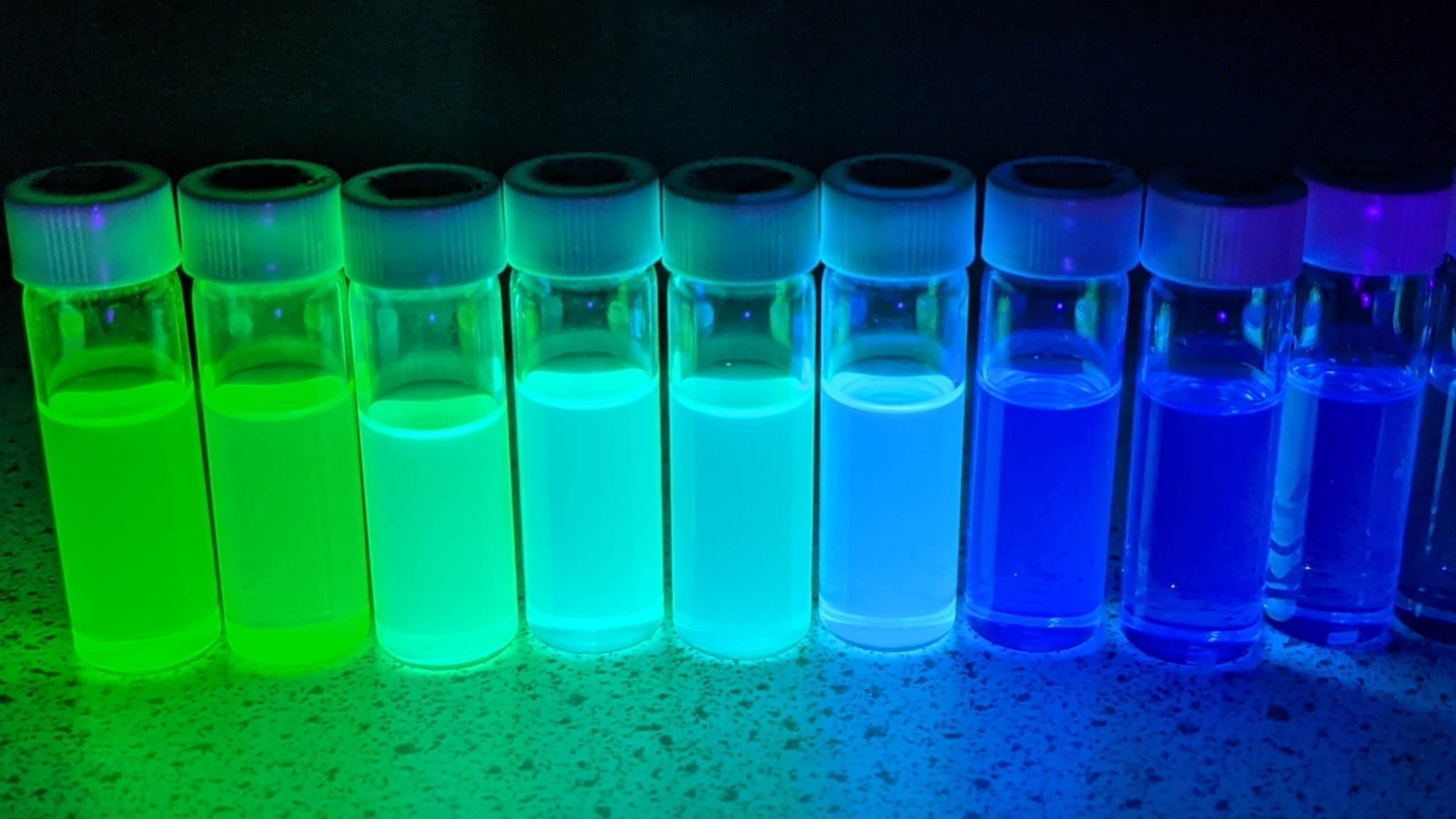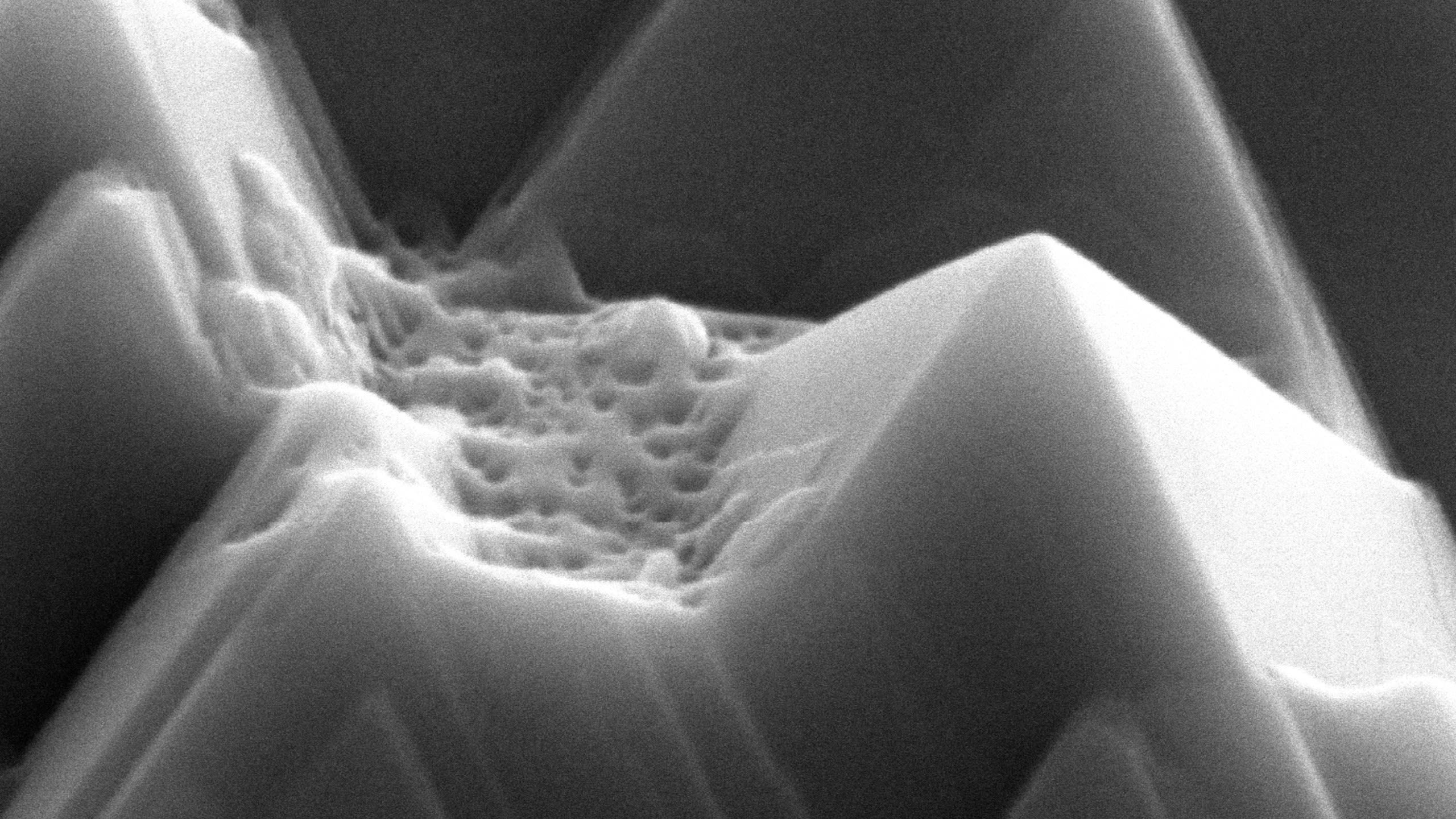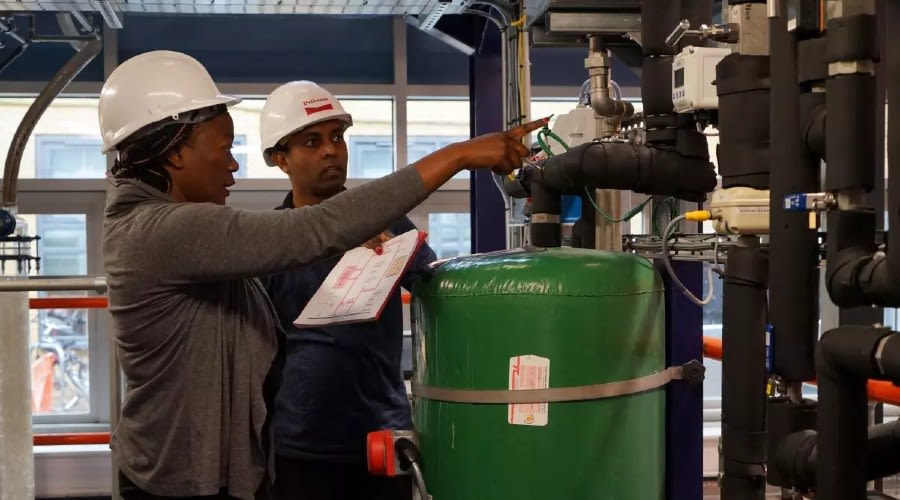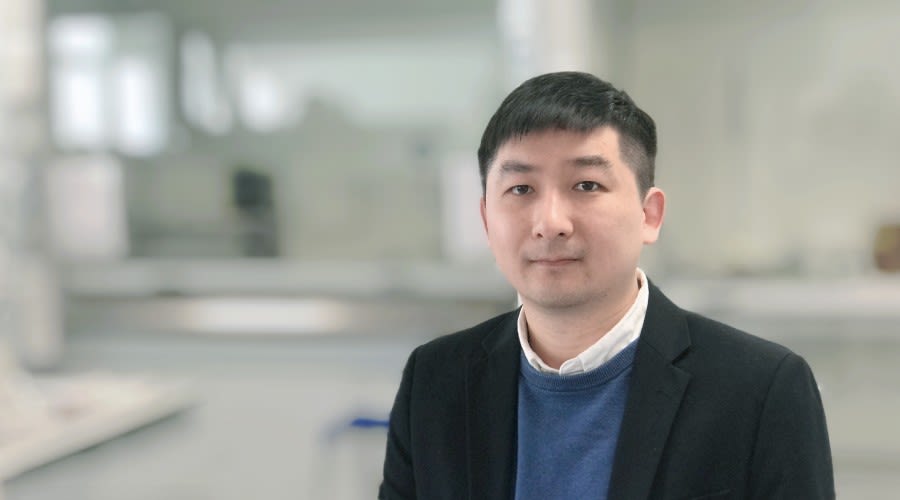Research in Focus
National defence research contributing to improved resilience and security

National defence
Research in the physical sciences and engineering is playing an important role in building the UK’s defences – from innovative face recognition techniques that can locate criminals to the development of novel materials for radiation detection.
Face value
Biometrics and face recognition technology has become a crucial component of a government’s armoury in protecting its borders by locating criminals and terrorists, and Surrey is leading the way in this area thanks to its deep understanding of machine learning and artificial intelligence (AI).
Developing a machine that can recognise a specific face is a mighty challenge.
“Facial features are more or less the same for everybody, so we are talking about tiny nuances,” says Professor Josef Kittler who has pioneered biometrics using machine learning since the 1990s.
“And while we had technology 20 years ago which could do a reasonable job in very controlled scenarios – where the person is facing forward in good illumination – in policing scenarios, images captured by CCTV, for example, are not like this.”
Working in the Centre for Vision, Speech and Signal Processing (CVSSP), over the past five years Professor Kittler has developed new algorithms which enable ‘unconstrained’ facial recognition technology capable of identifying faces captured in poor light, crowded areas, in images of low resolution and poor quality.
In March 2022, at a Home Office conference and exhibition, Surrey spin-out company Sensus Futuris unveiled new products designed to address key challenges for the police and other agencies.
Photo: Getty Images
These include ‘Capture’, a world-first system which searches suspects across CCTV, social media and other sources, making the use of images to solve crime as systematic as the use of fingerprints or DNA. Another technology, ‘Protector’, detects individuals in a video, matching them to a watch list, and integrates both low-resolution face recognition and verbal descriptions.
Sensus Futuris CEO Professor Kittler explains: “The unique thing about this technology is that it can re-identify the same person through different videos using verbal information that could be provided by a witness such as ‘tall lady with blond hair wearing blue jeans and ankle boots’. The system will find everyone fitting that description which can then be narrowed down.
“To comply with GDPR regulations, CCTV footage generally has to be deleted within 30 days, so the ability of our ‘Capture’ product to speedily highlight and summarise the relevant footage could help police to avoid losing vital clues. It also has potential uses in other sectors such as archiving, and we’re currently exploring this is in a new EPSRC project to index large volumes of video information.”

Surrey-AWE Centre of Excellence grows its activities
Last autumn a Centre of Excellence was formed between Surrey and the Atomic Weapons Establishment (AWE). Focused on Materials Ageing, Performance and Lifetime Prediction, the Centre is connected to a broad range of research themes underpinning diverse national and societal priorities. Over its first year, the Centre has generated wide-ranging collaborations between doctoral researchers, undergraduates, visiting fellows from AWE, a new Surrey-based fellow, and academics from Mechanical Engineering Sciences, Chemistry and Physics.
The Centre of Excellence was first conceived by Professor Julie Yeomans in dialogue with AWE, building on joint research linking glass ceramics to metals. Professor Yeomans led and directed the Centre until her retirement in summer 2022, and her ambassadorial work will continue through her role as a William Penney Fellow. New Centre Director Dr Mark J Whiting is looking forward to taking it forward into its second year and beyond.
On 21 September the Centre held its first Technical Workshop which enabled the first year’s work to be disseminated and acted as a catalyst for collaboration with partner institutions and cocreation of new projects. To find out more about the Surrey-AWE Centre of Excellence, then please contact Dr Mark J Whiting at MAPlife@surrey.ac.uk.
Devising materials to boost radiation detection
Surrey’s understanding of novel perovskite materials is providing the key to a new type of radiation detector which could offer higher sensitivity and stability in x-ray imaging for security and healthcare.
A collaborative team at Surrey – which spans physics, chemistry and materials science – has provided the unique blend of skills needed to grow perovskite crystals, and synthesise and fabricate the novel materials ‘in-house’.
Perovskites are a range of organic and inorganic materials, already used in applications such as solar cells, which have exciting potential in the field of radiation detectors. Professor Paul Sellin says: “There are two classes of radiation detector – direct detectors which measure electrical signals, and scintillation detectors which measure light from the device. Perovskite materials can do both, which makes this area of research very interesting.”
The radiation detectors being developed at Surrey could be used in x-ray imaging applications for both the security and medical imaging sectors. “This would enable you to take an x-ray of a truck and see what is inside,” explains Professor Sellin. “Or in medical imaging, a digital x-ray camera could operate at a lower radiation dose and provide higher quality pictures.”
The Surrey team are now looking at developing next generation perovskite materials which will offer higher sensitivity and a higher stability, and reaching out to companies working in the radiation detection sector to explore prototypes.
They are also collaborating with national laboratories, military institutes, research and academic institutions on the international stage. Following initial funding of $1.1m from the US Defence Threat Reduction Agency (DTRA) in 2018, Surrey has become the only international partner in a DTRA-funded global research alliance which aims to integrate new materials into technology that improves nuclear survivability and response.


Surrey helps build capacity to eliminate chemical weapons
For over 20 years, Surrey has played a part in reducing the global threat of chemical weapons through its involvement in the Organisation for the Prohibition of Chemical Weapons (OPCW) Associate Programme.
Every August, the University’s Department of Chemical and Process Engineering hosts a group of delegates from all over the world for three weeks. Taking place partly on the Fluor pilot plant, the University segment of the programme is designed to teach the delegates the fundamentals of chemical businesses, chemical plant operations and basic chemical engineering theory. Some of the delegates go on to join their country’s national authority, administering the Chemical Weapons Convention in practice and facilitating inspections.
The OPCW is a global organisation dedicated to promoting chemistry for peace and won the Nobel Peace Prize in 2013.



